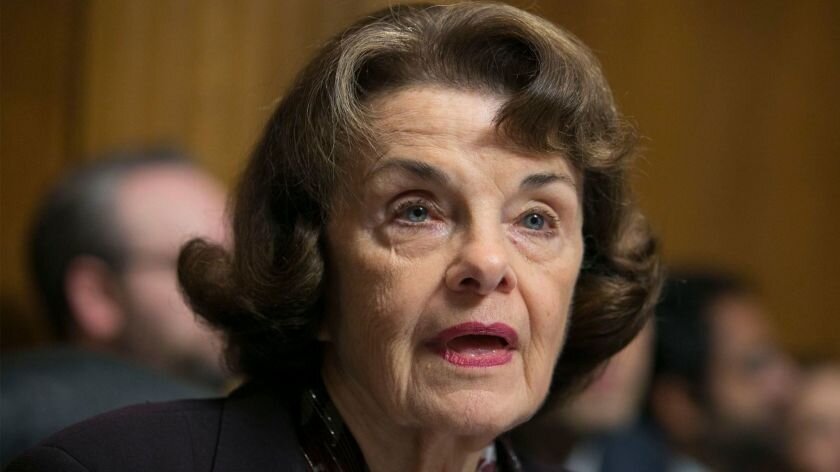Sen. Feinstein says U.S. and Iran need a coronavirus peace plan

TEHRAN - U.S. Senator Dianne Feinstein has said that the United States should provide partial, temporary sanctions relief to Iran when the country is fighting the coronavirus.
“The U.S. should provide partial, temporary sanctions relief to Iran and facilitate efforts by international organizations to provide humanitarian funds and supplies so the country can respond more effectively to its coronavirus outbreak. Doing so would reduce popular resentment in Iran against the U.S. and help contain the spread of the disease throughout the region,” she wrote in an article titled, “U.S. and Iran Need a Coronavirus Peace Plan” published by Bloomberg on Thursday.
She said that this partial and temporary removal of sanctions will include, “Temporarily waiving sanctions on entities that purchase petroleum, petroleum products or petrochemical products from Iran; on foreign financial institutions that transact with Iran's Central Bank, or any sanctioned Iranian bank; and on foreign financial institutions that conduct or facilitate the purchase of Iranian petroleum-based products. This would allow Iran to sell much larger quantities of oil and get paid for it in hard currency.”
“Providing a 90-day general license authorizing specific medical goods and equipment, such as Covid-19 test kits, therapeutics, respiratory devices, and personal protective equipment.”
She also added, “Supporting Iran’s request for $5 billion in emergency funds from the International Monetary Fund, with oversight mechanisms within or similar to the Swiss Humanitarian Trade Arrangement, to facilitate the flow of much-needed goods to the Iranian people while safeguarding against the regime’s diversion of funds for malign purposes.”
Donald Trump’s administration is not only refusing to remove its illegal sanctions on Iran, but it is also blocking Tehran’s efforts to get an emergency loan from the International Monetary Fund to cope with the coronavirus crisis.
Iran’s central bank wrote in March to the IMF requesting $5bn from its Rapid Financing Initiative, an emergency program that gives loans to countries facing sudden shocks such as natural disasters.
It was Tehran’s first request for IMF loan since the 1979 Islamic Revolution.
Earlier in April, the Wall Street Journal reported, citing sources from the White House, that the United States was seeking to prevent the IMF from providing loan to Iran.
Central Bank of Iran (CBI) Governor Abdolnaser Hemmati, in a post on his Instagram page on April 9, wrote, “We expect the IMF to immediately respond to the request of Iran which itself is a founding member of the fund.”
Hemmati has urged the IMF to put politics aside and do its professional duties in regard to Iran’s requests for financial aid during crises, especially in the wake of the coronavirus pandemic.
“I would like to repeat that all UN organizations say the IMF or WHO, should stay away from politics and deliver on their institutional mandates,” Hemmati said in an interview with Bloomberg published on April 19.
Government spokesperson Ali Rabiei said on April 13 that the United States has no right to prevent the IMF from giving a loan to Iran.
“From the legal point of view, the United States is not in the position to obstruct the legal performance of institutions and international organizations,” he said in a press conference.
He added, “The United States must understand that the international institutions are not its property.”
European Union foreign policy chief Joseph Borrell on April 24 criticized the U.S. for blocking Iran’s request for a loan from the IMF.
“I regret that ... the United States are opposing the International Monetary Fund to take this decision,” Borrell said during a virtual press conference at the end of a video meeting of EU foreign affairs ministers, Politico reported
“From the humanitarian point of view, this decision, this request should have been accepted.”
NA/PA
